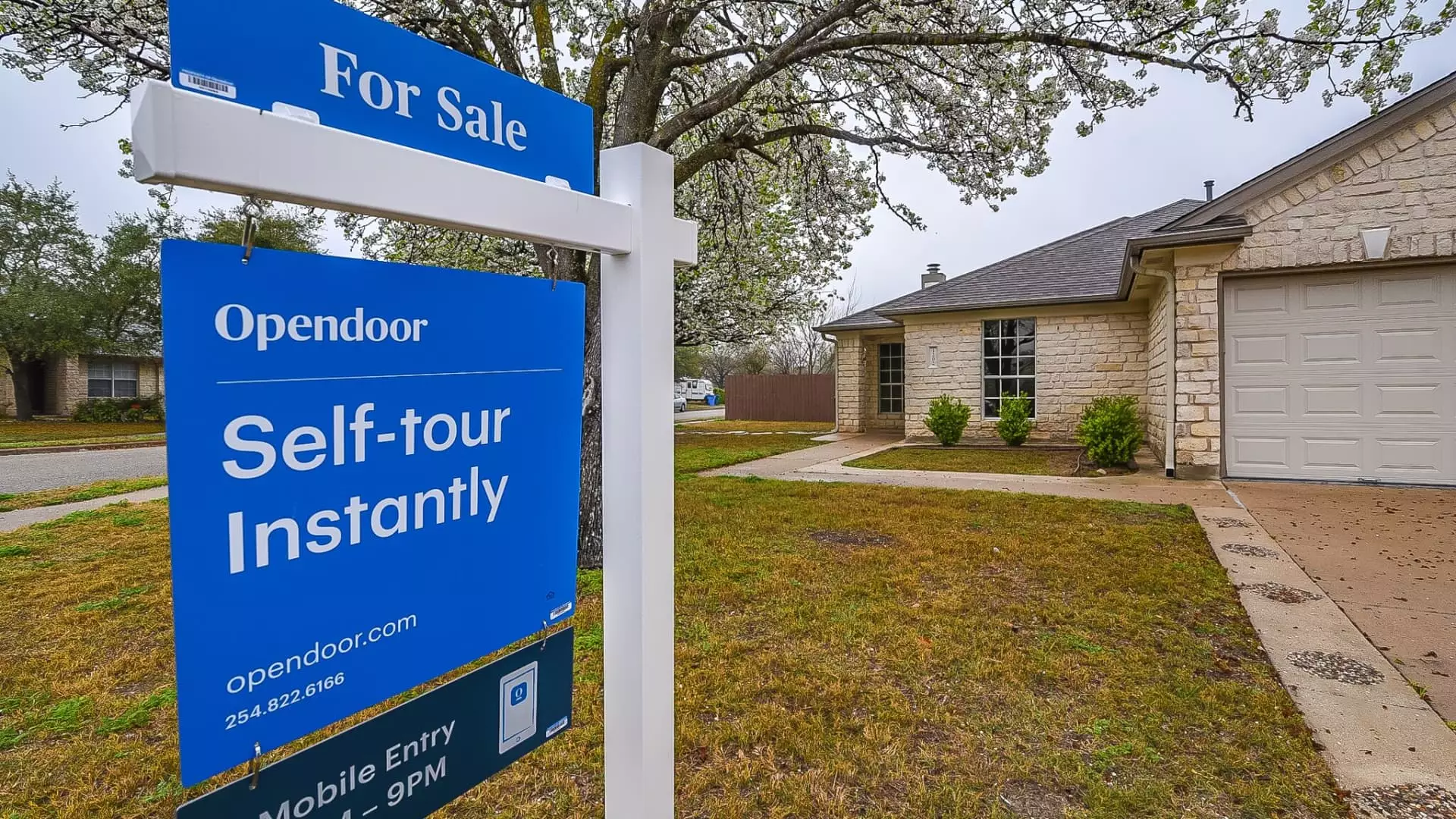In recent weeks, Opendoor’s stock has transformed from a near-worthless penny stock to a speculative darling, capturing the attention of traders and hedge fund managers alike. This dramatic rally, fueled by a combination of optimism and speculation, showcases the volatile nature of modern markets where sentiment can swing wildly without substantial underlying improvements in fundamentals. Although CEO Carrie Wheeler expressed gratitude for the newfound enthusiasm, her words felt more like a diplomatic gesture than an endorsement of sustainable growth. The stark reality is that the company’s market capitalization has not yet reflected its recent surge—a classic example of how hype can distort valuation temporarily. Investors, eager for a turnaround, are betting on a distorted narrative of a future where Opendoor might reclaim its past glory, ignoring the stark indicators that reveal a business still struggling to stabilize amidst economic headwinds.
Fundamentals or Fads? A Critical Look at Opendoor’s Business Model
At its core, Opendoor operates on the premise of leveraging technology to disrupt traditional real estate transactions, aiming to buy and sell homes more efficiently. Yet, this concept has always hinged on a delicate balancing act—one that has been thrown off course by macroeconomic shifts. The abrupt rise in interest rates has choked demand, leading to a grinding decline in revenue and forcing the company to rethink its strategy. The fall from a peak revenue of over $15 billion in 2022 to a paltry $5.2 billion last year isn’t merely a stumble but a sign of fundamental fragility. The company’s recent attempts to pivot from its core “iBuying” operations to a referrals-based model signals an acknowledgment of past missteps. However, shifting away from its original profit engine amidst poor market conditions resembles a desperate attempt to sidestep the harsh realities rather than a strategic evolution grounded in solid growth. It raises the question: Is Opendoor genuinely innovating or merely adjusting to adverse circumstances?
The Reality Check: Overpromising and Underperforming
The promising signs of improvement—such as a marginal decrease in net losses or a slight increase in revenue—are insufficient to inspire confidence in Opendoor’s long-term viability. The company’s second-quarter revenue, up by just 4%, is a modest figure when considering the scale of the challenge. The forecast for the upcoming quarter, projecting a revenue decline of over 36%, is a bleak indicator that the housing market remains a tough environment for even the most flexible players. Furthermore, the company’s guidance for significantly fewer home acquisitions—dropping from over 3,500 to just 1,200—signals a retreat, not a comeback. With housing demand subdued and mortgage rates still high, Opendoor’s shift toward a lower-capital-referral model could be more of a survival strategy than a recipe for growth. It’s an indication that the real challenge lies ahead, and the optimism fueled by hedge fund bets and stock rallies might be misplaced or prematurely optimistic.
Should Investors Believe in a Bright Future or Beware the Mirage?
The involvement of hedge fund manager Eric Jackson and his ambitious target of an $82 stock price adds a layer of speculative fervor that seems divorced from current realities. While it is encouraging to see some institutional interest, this enthusiasm must be tempered with skepticism. The idea that a struggling public company can swiftly return to profitability through a strategic pivot is overly simplistic. The housing market remains volatile, interest rates are unlikely to retreat to levels that stimulate full-throated demand anytime soon, and Opendoor’s foundational business model appears strained under current conditions.
In a broader sense, relying on a narrative of recovery driven by investor faith rather than solid operational improvements risks perpetuating a bubble mentality. The company’s recent moves to diversify into less capital-intensive avenues are promising, but they are hardly game-changers without sustained market support. It’s essential for investors to scrutinize whether Opendoor’s newfound visibility is an opportunity for genuine transformation or merely a fleeting specter of hope that will be dashed when macroeconomic realities resume dominance. The market’s tune may sway quickly, and the illusion of a turnaround can dissolve as abruptly as it appeared.
Opinion: From a center-wing liberal perspective, the situation exemplifies the dangers of short-term optimism overshadowing prudent analysis. While innovation and strategic shifts are necessary, they must be grounded in realistic assessments of economic conditions, rather than hype and speculative fervor. Supporting responsible corporate evolution means acknowledging reality—particularly the fragility of a market led by leveraged models in uncertain times—and fostering policies that promote sustainable growth over fleeting gains.


Leave a Reply